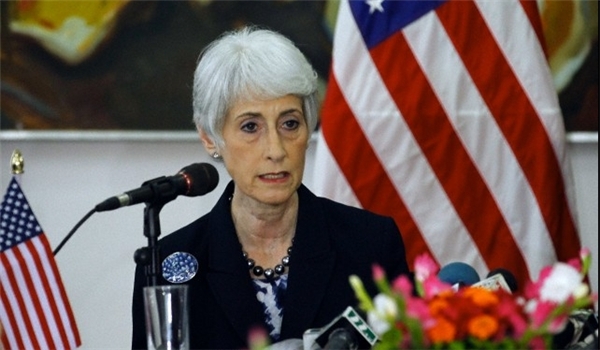
Wendy Sherman Regrets Remarks about Iranians' DNA

In the minds of many Iranians, Sherman is associated with their DNAs. They still
remember Sherman for her provocative remarks in October 2013, as Iran and the US
were in the midst of talks to settle a long-running dispute over Iran’s nuclear
program.
"Deception is a part of (Iranians') DNA,” Sherman told members of the Senate
Foreign Relations Committee at the time.
The comments by such a senior US State Department official and America’s top
negotiator in the talks were taken as an insult in Iranian political and social
circles, with some outlets urging a boycott of talks.
At the time, Iranian netizens took to social media to remind the US of its
dismal record in betraying the trust of Iranians, pointing to the US
co-orchestrated 1953 coup and the 1981 Algiers accord, among other displays of
the untrustworthiness of the US.
In a recent interview with the CBS, Sherman admitted that she was wrong by
uttering such words against the Iranians.
Asked by the CBS that as a US official at the time she should have watched her
words when speaking about Iran otherwise it would be incredibly dangerous,
Sherman said, "Indeed. It is incredibly dangerous."
"I regretted having made that statement," she said.
Asked by the CBS about the statement, Sherman answered, "The statement was that
deception was in their DNA. It was an answer to a question from a senator and
the senate foreign relations committee hearing and that led to 'Death to Wendy
Sherman' on the streets of Tehran."
The US diplomat is now out with a new book called, "Not for the Faint of Heart:
Lessons in Courage, Power, and Persistence." In it, she explains how people can
apply what she learned in high-stakes negotiations to get what they want in
everyday life.
"I think that what I want people to understand is that to do a good negotiation,
to really be a good diplomat, you need courage, you need to be able to persist,
you need to understand you have to have a team around you," Sherman told "CBS
This Morning" on Friday.
Sherman has just been appointed as the new director of the Harvard Kennedy
School's Center for Public Leadership.
Source: FNA















